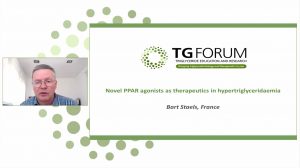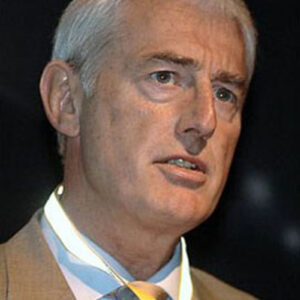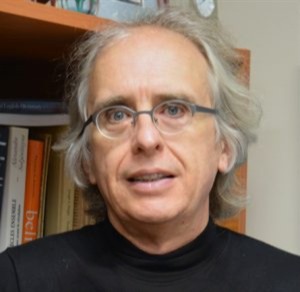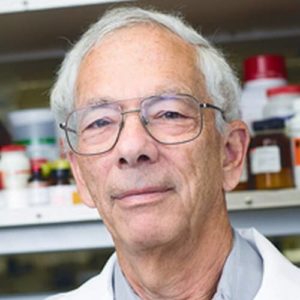Latest »
Ninth Closed Scientific Expert Meeting of the Editorial Board
DGATs, lipid droplets and the biology of triglyceride storage
 Robert Farese, Sloan Kettering Institute and Memorial Sloan Kettering Cancer Center, New York, USA, describes the catalysis of TG synthesis by diacylglycerol acyltransferase 1 and 2 (DGAT 1 and DGAT 2) in the endoplasmic reticulum and the packaging of TG into lipid droplets, and discusses recent studies targeting DGAT 2 to reduce TG and improve liver function in patients with metabolic dysfunction-associated steatotic liver disease (MAFLD).
Robert Farese, Sloan Kettering Institute and Memorial Sloan Kettering Cancer Center, New York, USA, describes the catalysis of TG synthesis by diacylglycerol acyltransferase 1 and 2 (DGAT 1 and DGAT 2) in the endoplasmic reticulum and the packaging of TG into lipid droplets, and discusses recent studies targeting DGAT 2 to reduce TG and improve liver function in patients with metabolic dysfunction-associated steatotic liver disease (MAFLD).
Watch the presentation
Making the diagnosis of monogenic vs polygenic SHTG: Does it matter for drug therapy?
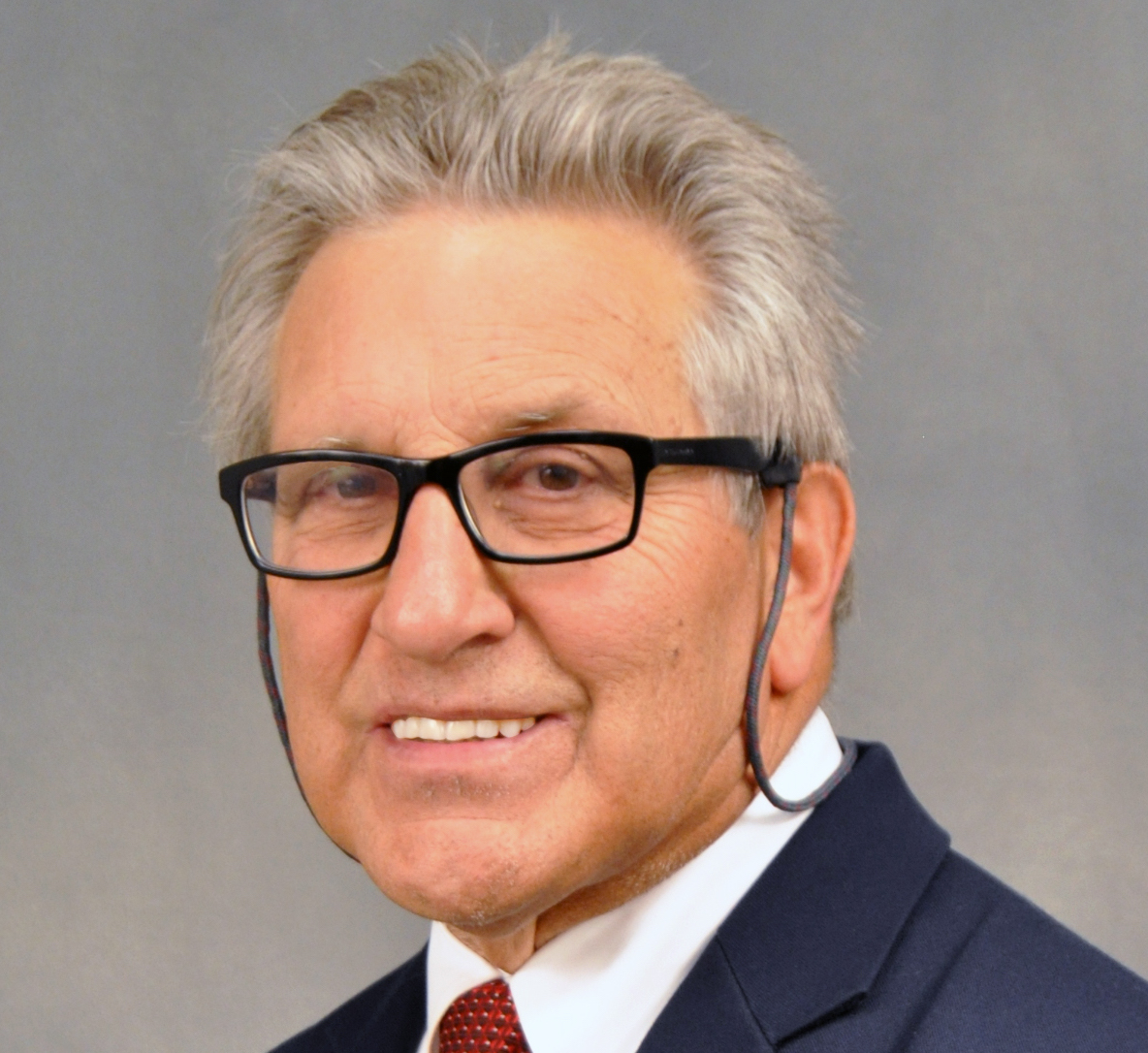 Robert Eckel, University of Colorado, Aurora, USA, explains that as the first novel TG lowering agents complete clinical trials and are approved, the importance of differentiating between monogenic and polygenic causes of severe hypertriglyceridaemia becomes increasingly important. He discusses the similarities and differences between the European and North American diagnostic scoring systems for familial chylomicronaemia syndrome.
Robert Eckel, University of Colorado, Aurora, USA, explains that as the first novel TG lowering agents complete clinical trials and are approved, the importance of differentiating between monogenic and polygenic causes of severe hypertriglyceridaemia becomes increasingly important. He discusses the similarities and differences between the European and North American diagnostic scoring systems for familial chylomicronaemia syndrome.
Watch the presentation
Making the diagnosis of monogenic vs polygenic SHTG: Does it matter for nutritional therapy?
 Alice Lichtenstein, Tufts University, Boston, USA, shows why a very low fat diet (10-15%) is key to management of monogenic severe hypertriglyceridaemia (SHTG), along with meeting essential fatty acid and fat soluble vitamin requirements, avoiding simple carbohydrates, and reducing alcohol. For those with polygenic SHTG, the emphasis is on a healthy weight, minimising alcohol intake and consuming moderate amounts of ‘healthy’ unsaturated fat.
Alice Lichtenstein, Tufts University, Boston, USA, shows why a very low fat diet (10-15%) is key to management of monogenic severe hypertriglyceridaemia (SHTG), along with meeting essential fatty acid and fat soluble vitamin requirements, avoiding simple carbohydrates, and reducing alcohol. For those with polygenic SHTG, the emphasis is on a healthy weight, minimising alcohol intake and consuming moderate amounts of ‘healthy’ unsaturated fat.
Watch the presentation

Expert commentaries
The challenges of treating FCS and MCS: Where are we now?
 As clinical trials of novel therapies show promising TG-lowering effects in patients with familial chylomicronaemia syndrome (FCS) and other forms of severe hypertriglyceridaemia (SHTG), Professor Henry Ginsberg (University of Columbia, New York, USA) discusses the causes, differential diagnosis and management of these challenging conditions.
As clinical trials of novel therapies show promising TG-lowering effects in patients with familial chylomicronaemia syndrome (FCS) and other forms of severe hypertriglyceridaemia (SHTG), Professor Henry Ginsberg (University of Columbia, New York, USA) discusses the causes, differential diagnosis and management of these challenging conditions.
Read the commentary
Triglyceride metabolism and mortality: What is the link?
 Higher rates of triglyceride metabolism have recently been linked to increased all-cause, cardiovascular, cancer, and other mortality, but what does it mean for practising clinicians? Professor Børge G. Nordestgaard (University of Copenhagen, Denmark) discusses the new findings and their potential implications.
Higher rates of triglyceride metabolism have recently been linked to increased all-cause, cardiovascular, cancer, and other mortality, but what does it mean for practising clinicians? Professor Børge G. Nordestgaard (University of Copenhagen, Denmark) discusses the new findings and their potential implications.
Read the commentary
Recommended Reading
Cholesterol, Lipoproteins, and Cardiovascular Health: Separating the Good (HDL), the Bad (LDL), and the Remnant.
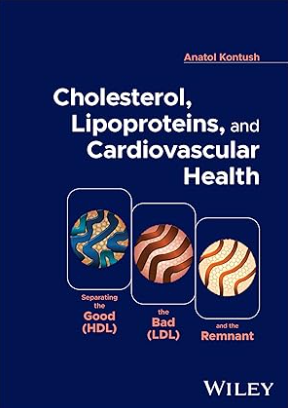 Find out more about this thorough and rigorous new guide to the particles that are key to cardiovascular health …
Find out more about this thorough and rigorous new guide to the particles that are key to cardiovascular health …
Read more
Third Closed Scientific Expert Meeting of the Editorial Board
Keynote: What have we learned from triglyceride lowering trials using fibrates over the past 40 years?
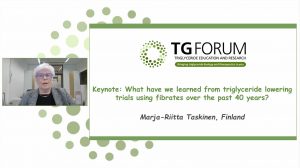
Professor Marja-Riitta Taskinen reviews the evidence from the FIELD and ACCORD clinical trials in type 2 diabetes and considers how treatment might be tailored to patients most likely to benefit.
Expert Commentaries
Triglyceride-rich lipoproteins and their remnants: Commentary on the 2021 EAS Consensus Statement
 Professor Gary Lewis (University of Toronto, Canada) discusses the evidence presented in the 2021 EAS Consensus Statement and its implications for clinicians and patients.
Professor Gary Lewis (University of Toronto, Canada) discusses the evidence presented in the 2021 EAS Consensus Statement and its implications for clinicians and patients.
ASCVD risk with persistent hypertriglyceridaemia: What is the latest guidance from ACC?
 Dr Michael Miller (University of Maryland, Baltimore, USA) discusses the background to the latest ACC guidance and the recommendation to stratify patients for treatment according to their residual LDL-cholesterol level.
Dr Michael Miller (University of Maryland, Baltimore, USA) discusses the background to the latest ACC guidance and the recommendation to stratify patients for treatment according to their residual LDL-cholesterol level.
Clinical trials of innovative therapeutics
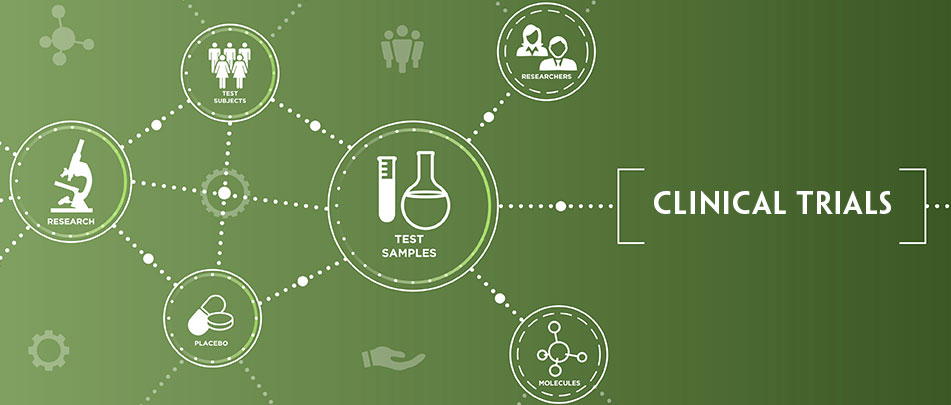
New insights into the biology of triglyceride metabolism underpin the development of novel therapies for managing hypertriglyceridaemia to reduce the risk of atherosclerotic cardiovascular disease (ASCVD) and, for severely elevated levels, pancreatitis.
In the last decade epidemiology and genetic studies – in particular, Mendelian randomisation studies – have moved the field forward and we are on the cusp of a new era in managing elevated triglycerides.
Major outcomes studies with these new therapies are fundamental to answering the much-debated question: Does lowering elevated triglycerides reduce residual cardiovascular risk?
About Triglyceride Forum
The Triglyceride Forum is a unique, independent, expert-led global initiative to address the rapidly evolving field of triglycerides and triglyceride-rich lipoproteins in cardiovascular disease and pancreatitis. This Forum will provide clinicians and researchers with international, open access, peer-reviewed resources at an important time when new and innovative molecules are at advanced stages of development… Read more >>
Why join?
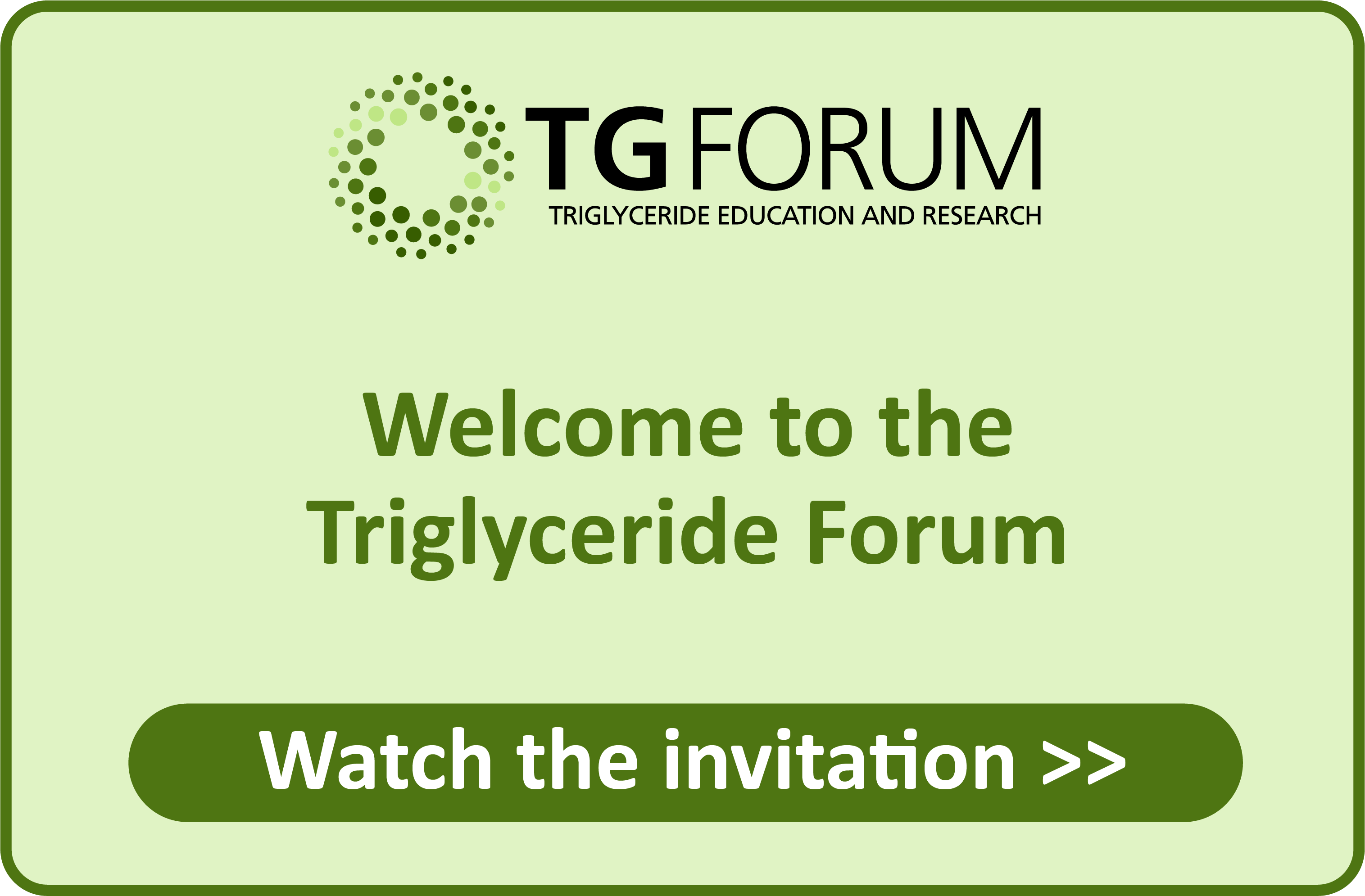 Professors Ginsberg and Chapman explain the fundamental scientific and clinical research that has turned the spotlight on triglyceride-rich lipoproteins and their remnants as important players in the development of atherosclerotic CVD and pancreatitis and as targets for novel therapies for both these serious diseases.
Professors Ginsberg and Chapman explain the fundamental scientific and clinical research that has turned the spotlight on triglyceride-rich lipoproteins and their remnants as important players in the development of atherosclerotic CVD and pancreatitis and as targets for novel therapies for both these serious diseases.
FREE MEMBERSHIP
 Join the Triglyceride Forum for open access to independent, evidence based knowledge and high quality educational programmes
Join the Triglyceride Forum for open access to independent, evidence based knowledge and high quality educational programmes
View invitation from Henry Ginsberg
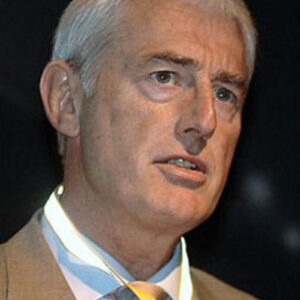 Join the Triglyceride Forum to share new data and exchange opinions with clinicians and researchers around the world
Join the Triglyceride Forum to share new data and exchange opinions with clinicians and researchers around the world
View invitation from John Chapman
Meet our Steering Committee
MAKING THE CONNECTION: TRIGLYCERIDES, RESIDUAL CV RISK AND PANCREATITIS
This unique, downloadable slide deck developed specially for Triglyceride Forum is a state-of-the-art guide to triglycerides and their association with residual cardiovascular risk and pancreatitis.

Why triglycerides now?





From the editors





Educational partners and supporters





